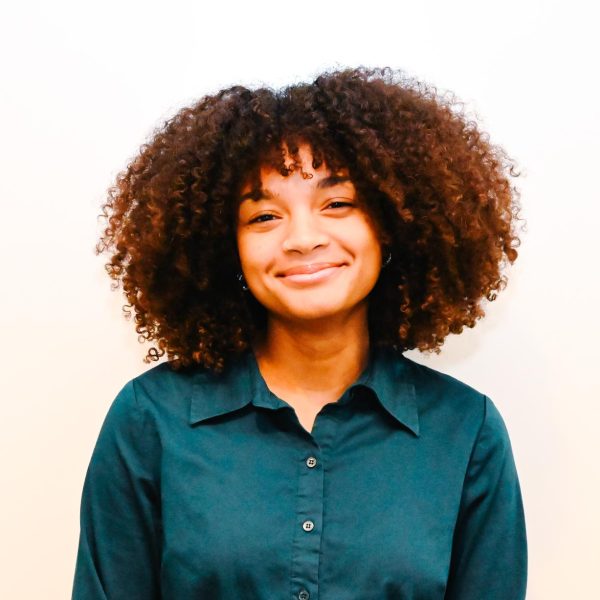**Trigger Warning: This article includes mentions and descriptions of war and death**
Growing up as an American Jew, you learn about the tragic history of Jewish oppression from a young age. In Chaveriem (Hebrew) school, the Shoah (Holocaust) is delicately discussed, marking the beginning of conversations that never get easier. When you go to your secular school, you again learn about the Shoah, but this time all eyes are on you. The teacher tiptoes around many of the atrocities carried out by the Nazi party. No one wants to say anything when they ask questions. As you sit at your desk, a burning feeling of shame and sadness envelops you. You again learn about genocide, but are taught to understand it as a historical term, rather than something that is happening in our current world.
The American collective conscience wants genocide to be in the past, wants any and all conversations or learning about it controlled. After all, we cannot admit that a genocide was carried out on the very land we call home. Not here, not ever. Admitting this to ourselves would be detrimental; it would blow apart every conception of freedom and our American tradition of understood perfection. It couldn’t and didn’t happen here, and there is no chance that we are complicit in genocide anywhere else. That idea couldn’t be further from the truth.
Jan. 27 was International Holocaust Remembrance Day, a worldwide day of remembrance for the massive genocide that occurred during the 1940s. Officially declared in 2005 by the United Nations, it called for all UN member countries to remember the plight of those targeted by the Nazi party and create initiates to educate citizens on this dark historical period. [1] Jewish people accounted for an estimated six million of those murdered, and another 11 million victims included the Romani people, disabled individuals and members of the LGBTQ+ community. Concentration camps and “ghettos” scattered across Nazi-occupied Europe served as locations for the systemic murder and oppression of countless people.
This year, as I sit and reflect on the history of my people, I feel the typical emotions. Soul crushing sadness, fiery anger and gut-wrenching disgust. And when I finally pull myself out of the past, I am flooded with the same feelings again, but this time I’m not looking at black-and-white photographs and ancient documents. Full-color videos, photos and testimonials are on my phone, in my pocket as I move about the world. It’s happening again. Another genocide is happening, and there is no end in sight.
As of Jan. 21, 2024, NPR reports over 25,000 Palestinians have been killed in the war in Gaza, which began Oct. 7 of 2023. [2] This number only accounts for the bodies found, not the ones buried under rubble that were once family homes, businesses and places of worship. At least two-thirds of those dead were women and children, civilians who are viewed as no more than “casualties of war.” As a Jewish person, I am especially sensitive to the use of words like genocide and ethnic cleansing. But these terms are not exclusive to the Holocaust. It is essential to recognize that, especially in this present moment.
During World War II, as the Nazi party orchestrated the systemic murder of millions, people relished in feelings of ignorance, even when the horrors of the Holocaust were exposed. Thousands of newspapers kept up coverage of the second World War, reporting on the atrocities unfolding in Europe. Many Americans were quiet when the government rejected refugees, sending them back to their deaths in Nazi-occupied Europe. Racist laws, such as the Immigration Act of 1924, enforced strict quotas on the number of immigrants allowed into the United States, according to PBS. [3] Because antisemitism was so deeply entrenched in American society, Jews and other groups targeted by the Nazi party did not receive the help they so desperately needed. Historians affirm this point, with decades of research to prove that much more could have been done to help the victims of the Holocaust.
The world had little sympathy then, and they have little sympathy now. Palestinians have been othered so severely that they have been dehumanized, the same way that the Jewish people were and continue to be. Xenophobia and racism have such a strong presence in our reality that many cannot see the thousands dead as innocent victims. We again are faced with an uncannily parallel situation, with an ocean separating us from atrocities and a mentality that has little regard for the suffering of others.
How can you look at photos of the wreckage that was once Gaza and do nothing? Mothers screaming and crying as their children are treated without anesthetic and their homes are blown to bits. Although there have been massive protests, powerful campaigns and an overall strong resistance against the actions of the Israeli government, a historical trend remains. It is a tradition of willful ignorance, a ritual that compels us to turn our backs while thousands suffer.
We say “never again” while it happens many times over right in front of our eyes. The world again whispers about genocide, but barely screams for it to stop.
SOURCES:


